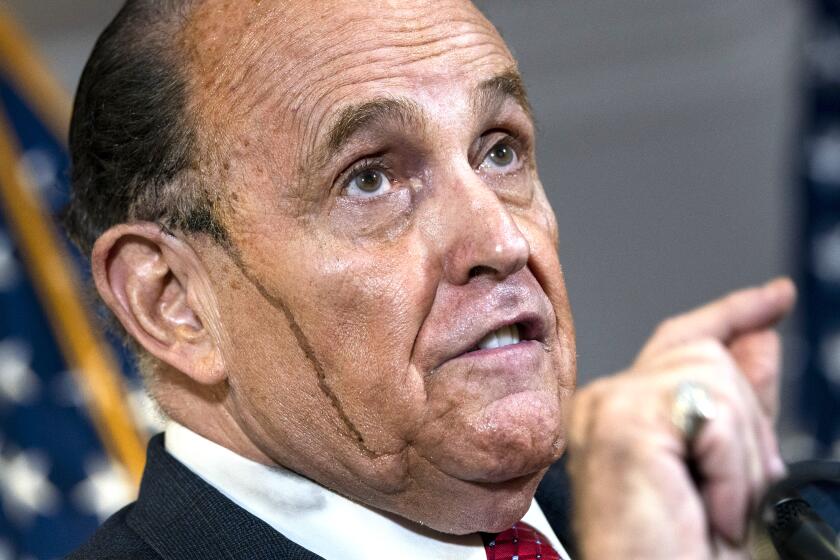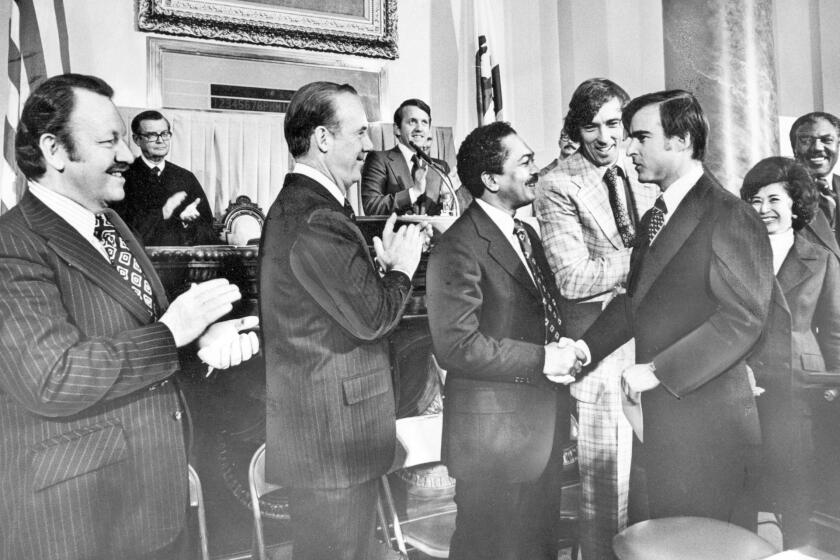Ted Kennedy, in a new biography, is better — and worse — than you thought
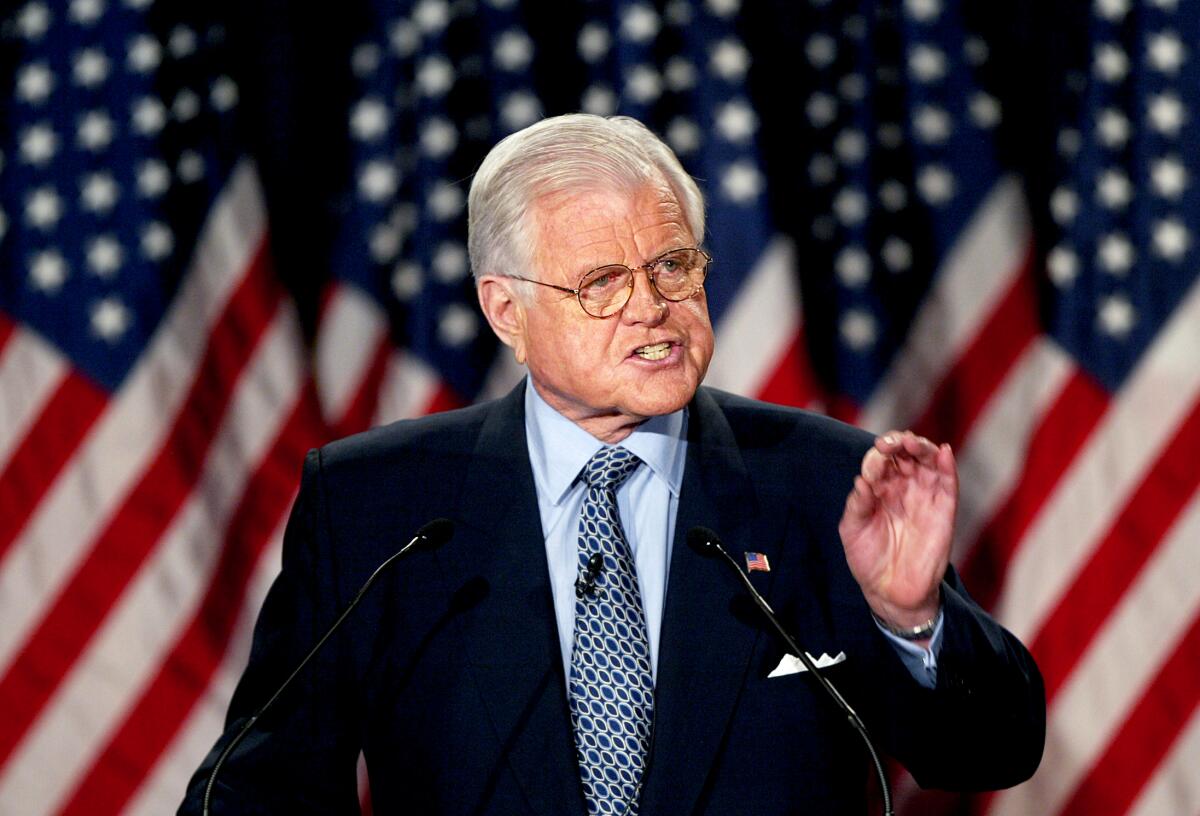
- Share via
On the Shelf
Ted Kennedy: A Life
By John A. Farrell
Penguin Press: 752 pages, $40
If you buy books linked on our site, The Times may earn a commission from Bookshop.org, whose fees support independent bookstores.
When Ted Kennedy feared that flunking a Spanish test would make him ineligible to play football at Harvard, he sent a friend in his place in hopes of securing a higher score. It was the second time Kennedy had tried this ploy, but this time it failed and he was expelled. His father, an imperious patriarch who dreamed of dynastic power for his sprawling family, was apoplectic.
“There are people who can mess up in life and not get caught,” he told his son. “You’re not one of them.”
It was a truth that helped define the future politician, who is freshly illuminated in John A. Farrell’s biography, “Ted Kennedy: A Life,” out this week.
His three older brothers — Joseph, John and Robert — died in war or at the hands of assassins. But Teddy lived long enough for his flaws to be fully exposed. All are laid bare in this book — the drinking, the infidelity, the selfishness, the casual cruelty, the emotional isolation.
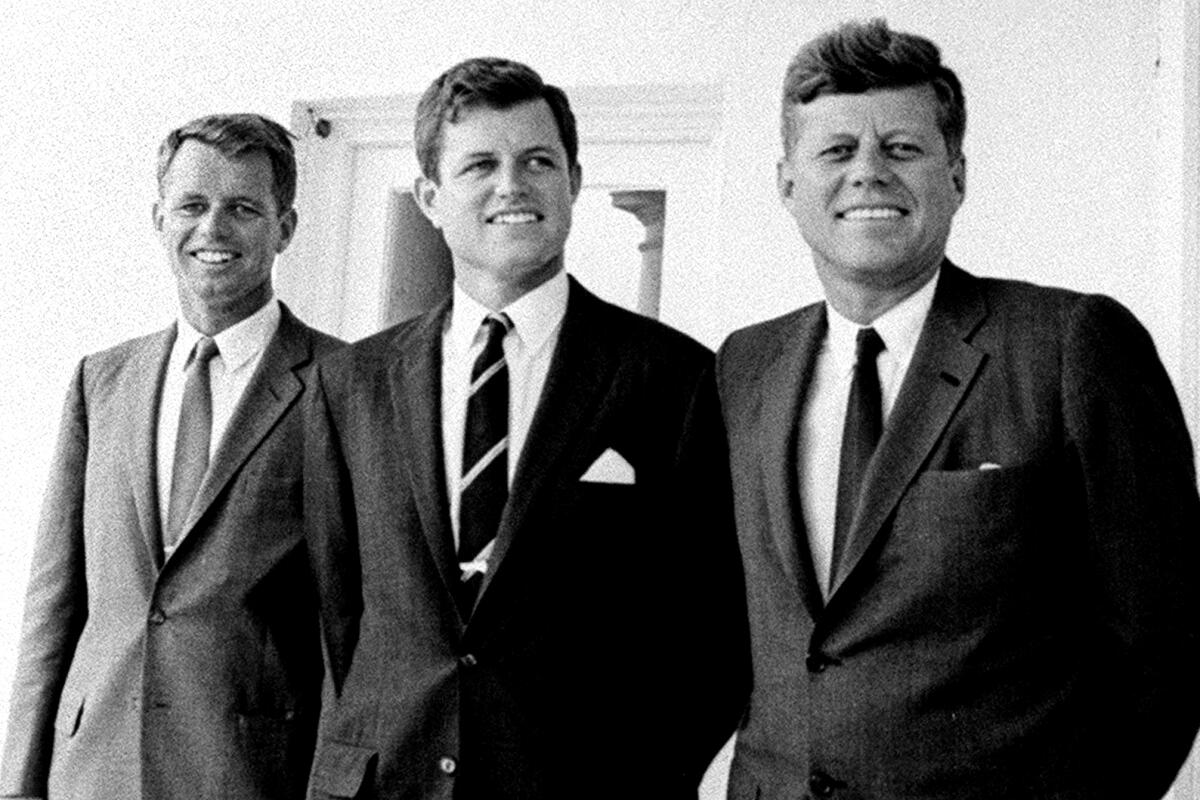
The central riddle of Kennedy is how these weaknesses existed alongside the benevolence, loyalty, perseverance and wisdom that made him one of the most influential senators in modern American history. This is, after all, the same man who declared “I define liberalism in this country” years after abandoning a young woman at the bottom of a pond during a car crash in Chappaquiddick, Mass.
“His brothers were icons, frozen in youth and time,” Farrell writes. “To him now fell a more arduous duty: to carry that fallen standard, over decades, and deliver.”
Without a doubt, Kennedy often stumbled. And yet he also delivered, time and again, on civil rights, healthcare, immigration and more. More than just a personal profile, Farrell’s book revisits the origins of policy debates that still divide the country. Kennedy’s fingerprints are on almost all of them.
The senator leaves a deeper imprint than most presidents, even if tragedies temper his triumphs.
Farrell’s book is also a character study of the ways the personal and the political can overlap and conflict. Kennedy may have withstood a series of scandals, but they also undermined his effectiveness as an advocate for liberal causes.
One of the clearest examples came in 1991. Restless late at night, Kennedy dragooned his son and nephew into joining him for drinks at a bar; each brought home a young woman. One of them accused the nephew of rape. The trial ended in acquittal, but not before becoming a media sensation that cast a harsh spotlight on a family that had shed its Camelot glow.
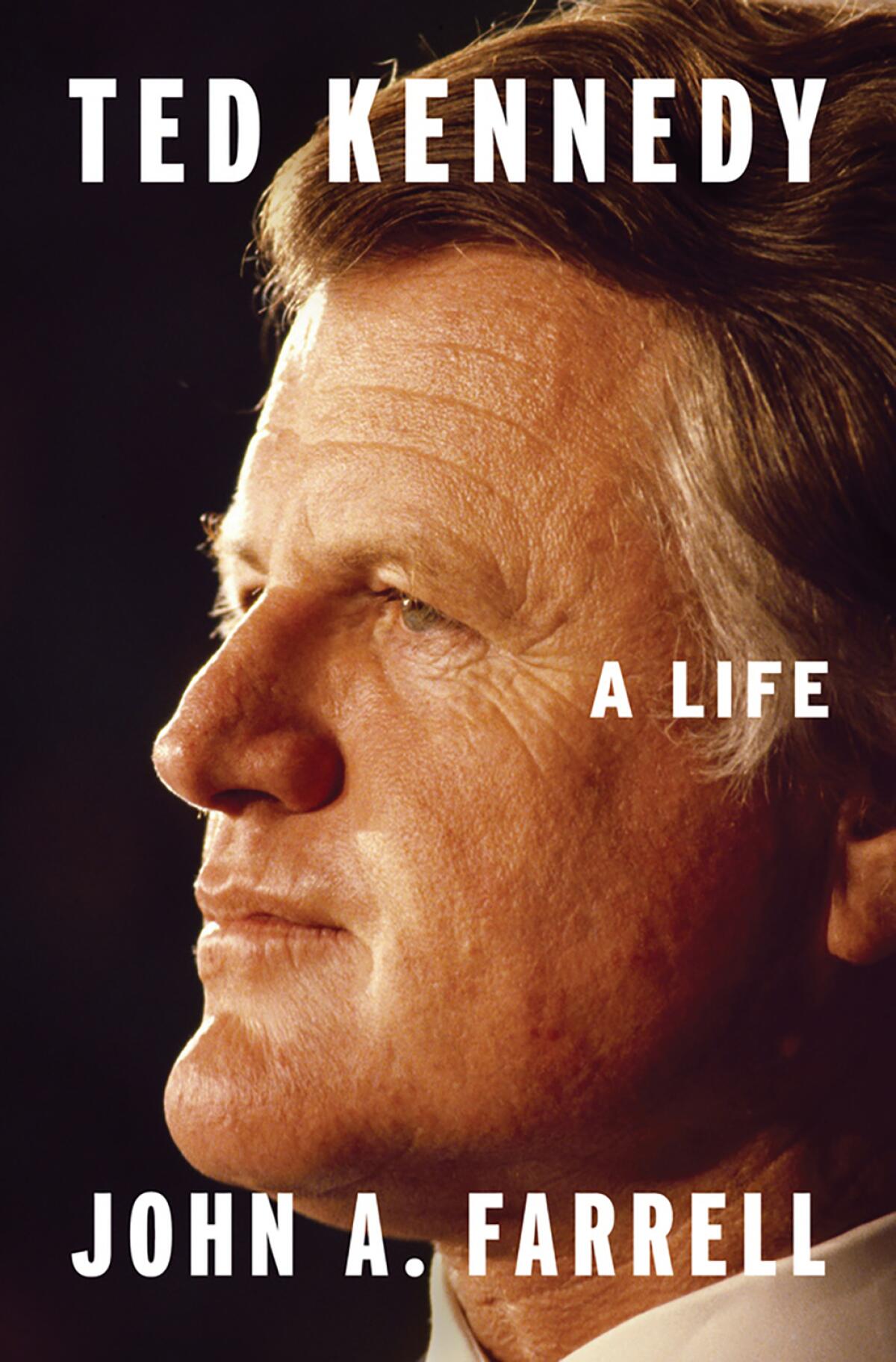
Right around this time, Clarence Thomas was nominated to replace Thurgood Marshall on the Supreme Court. When Anita Hill accused Thomas of sexual harassment, Kennedy was in no position to help lead the fight against him. He passed his time at the confirmation hearings by doodling sailboats, and Thomas was confirmed.
“It really did come to a head in those hearings: this disconnect between many of the principles he had espoused publicly and the things that he had allegedly done personally,” Hill told Farrell.
Kennedy’s upbringing was simultaneously gilded and twisted. His family’s wealth afforded him every educational opportunity; he also faced cruelty and maybe even molestation in boarding school. His mother, Rose, was often absent and disinterested; his father, Joseph Sr., domineering and demanding. When Kennedy became engaged to his first wife, his mother got her name wrong in a congratulatory note.
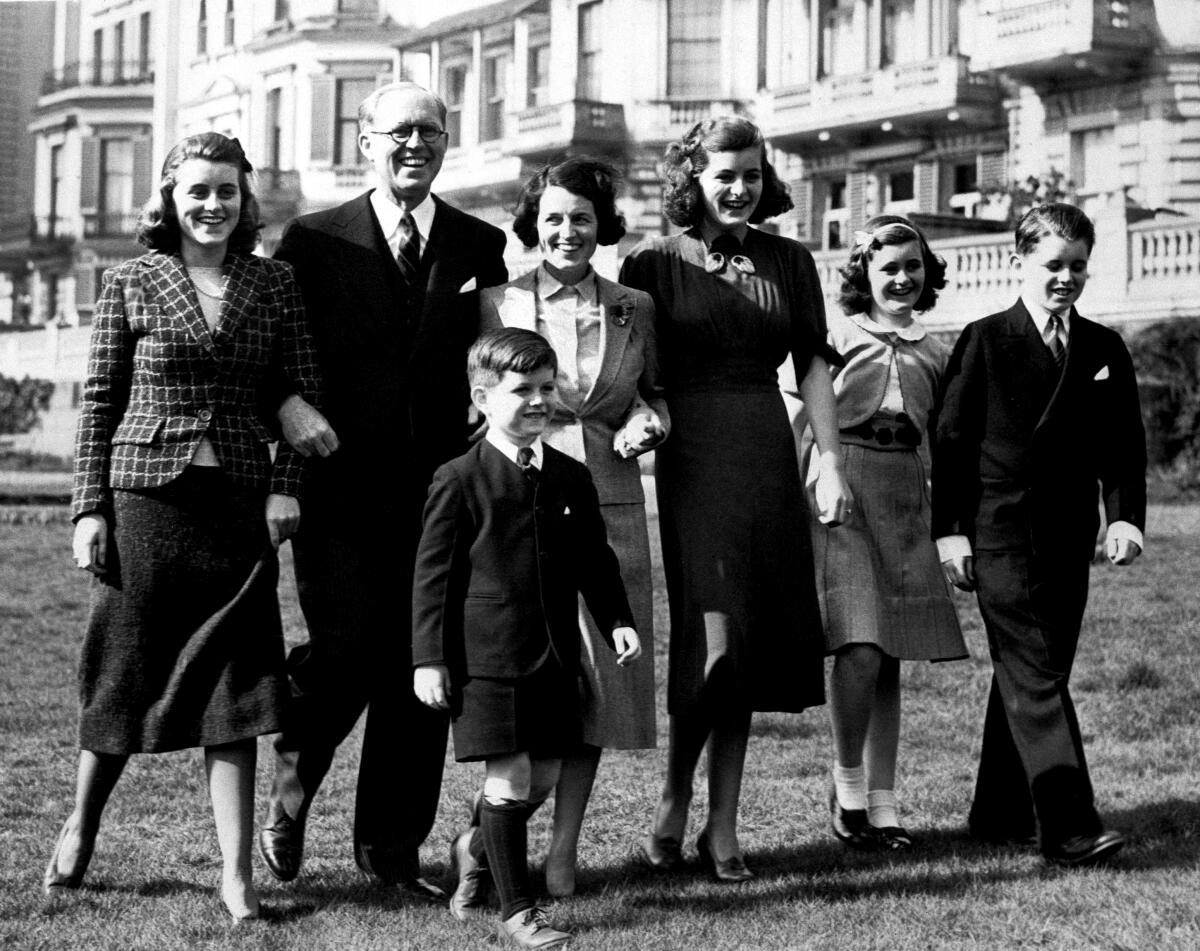
As the youngest of nine siblings, Ted was not viewed as a natural leader, and he became accustomed to acting deferential and pleasing others. So while his older brothers John and Robert struggled in the hidebound Senate, Teddy thrived in its clubby and hierarchical environs.
“Getting there early and staying late was all and everything in the U.S. Senate,” Farrell writes. “It was then a sump of aged men with liver spots, claws, and bourbon breath, who strode the chamber with reptilian gait and hailed one another with mellifluent courtesies.”
Andrew Kirtzman’s ‘Giuliani: The Rise and Tragic Fall of America’s Mayor,’ deftly connects the dots between Good Rudy and Bad Rudy.
Kennedy was only 30 when he became a senator, and he remained one until his death from cancer at 77. He was relentless until the end, fueled by passion for liberal causes but never hesitating to cut deals with conservative colleagues.
Farrell, a former reporter and editor at the Boston Globe, previously wrote biographies of Richard Nixon, Clarence Darrow and Tip O’Neill. He acknowledges in an afterword that it was daunting, if not foolhardy, to attempt a new book about Kennedy. Thousands of books have been written about his family, and Kennedy is already the subject of a two-part biography by Neal Gabler.
Even several years after Kennedy’s death, many of his papers remain under wraps, and Farrell writes that he “weighed surrender.” It’s to readers’ benefit that he did not give up, and his book is a monument to patience. Farrell mined historical archives from North Carolina to Kansas to California and many points in between. The result of his research is nearly 600 pages — not counting an extensive index and collection of source notes — that burst with detail.
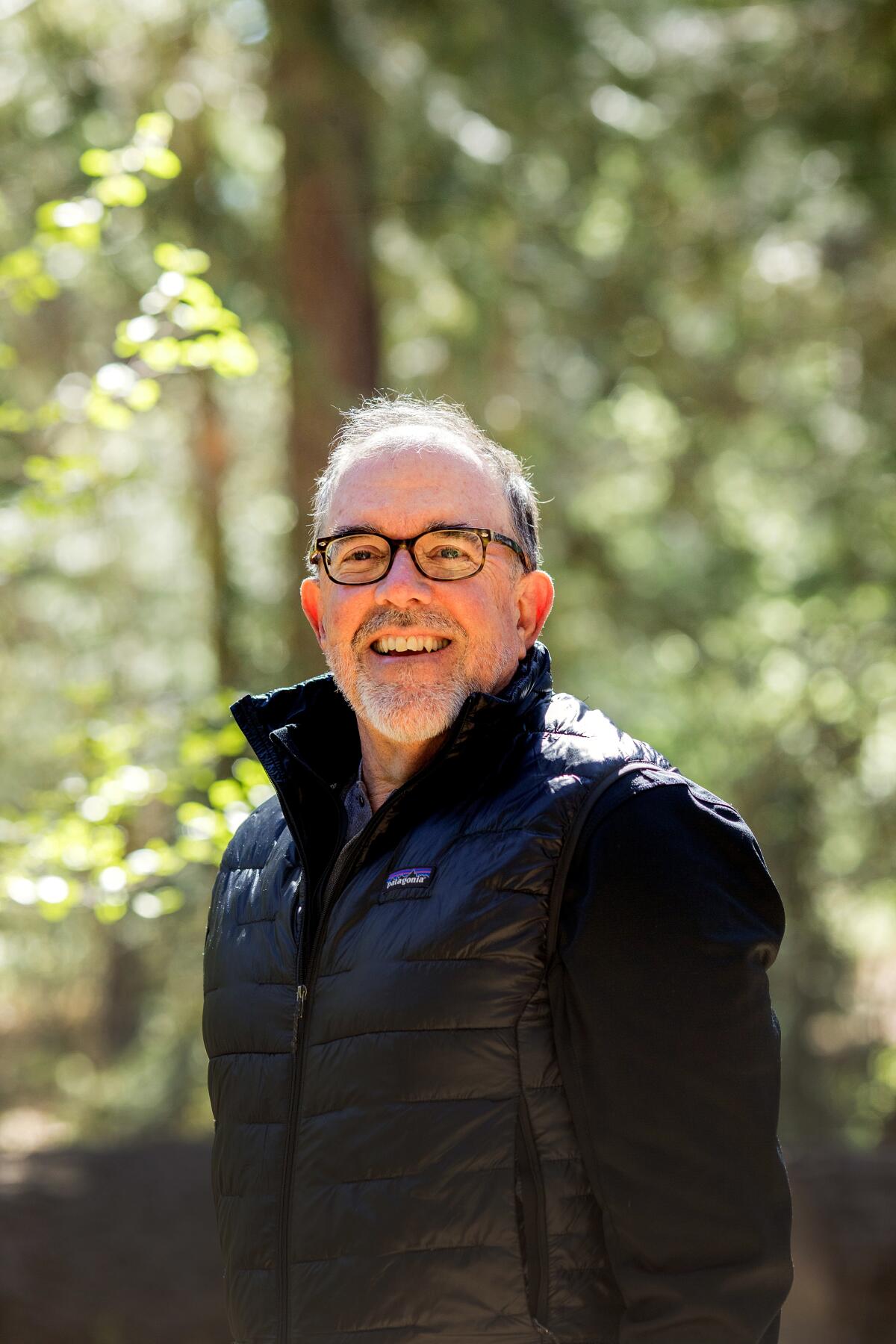
Farrell manages to unearth new tidbits about one of the most scrutinized lives in American politics. A close reading of a family confidant’s papers reveals that after Mary Jo Kopechne’s death at Chappaquiddick, one of Kennedy’s sisters believed he wanted “to find some way to cover it all up.” (The confidant, Arthur Schlesinger Jr., left this out of his own memoirs, perhaps a reflection of his loyalty to the Kennedy family.)
The author also unearthed some of Kennedy’s diary entries, including his description of meeting with Samuel Alito when he was a Supreme Court nominee. Asked about Roe vs. Wade, Kennedy wrote in his diary, Alito said, “I think it’s settled” and “I’m a believer in precedents.” Seventeen years later, Alito would author the court decision overturning the nationwide right to abortion.
By this point, Kennedy was considered a “lion of the Senate.” In earlier years, he had paid a price for his longevity, struggling to adapt to conservatism’s resurgence and more aggressive scrutiny of his personal behavior. But now endurance had its benefits. In the final stage of his life, he helped assemble the healthcare legislation that Barack Obama would sign into law after Kennedy’s death, capping one of the great crusades of his career.
Kennedy expected everyone to pitch in to help push the law over the finish line, even a former advisor who protested that he was too old.
“I’ve got brain cancer,” Kennedy said. “I’m still fighting.”
Veteran Times journalist Jim Newton’s graceful “Man of Tomorrow: The Relentless Life of Jerry Brown” doubles as a history of postwar California.
Megerian is the White House reporter for the Associated Press and a former staff writer for The Times.
More to Read
Sign up for our Book Club newsletter
Get the latest news, events and more from the Los Angeles Times Book Club, and help us get L.A. reading and talking.
You may occasionally receive promotional content from the Los Angeles Times.
